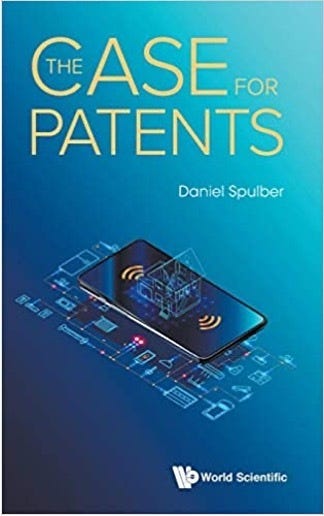Originally Published January 27, 2022
In this month’s newsletter we are embracing the saying “everything old is new again.” Developments at the federal antitrust agencies are moving policy in a direction that was pervasive in the middle of the 20th century, with a disdain for business efficiencies that are beneficial to the economy. Spinoffs and mergers in corporate America have occurred for decades, but current fears about concentration are causing some to question if there is a nefarious intent behind the economic activity.
In a flagship piece this month, we look at federal regulatory policies that have a harmful impact on market activity and discuss their status. Many of these policies have been on the books for the better part of a century, and in the wake of President Biden’s executive order on competition it may be time to shift focus away from corporate concentration and toward government abuses.
Oldie-but-Baddie: The Revival of an Antitrust ‘Efficiencies Offense’? | Truth on the Market
“Big is bad” was once the predominant sentiment among antitrust agencies and the courts, condemning company size as the root of evils in the economy and society. During this time, efficiencies gained from the merging of two companies were seen as a source of concern since the more efficient company would allegedly be better able to monopolize the market. During the late 20thcentury, the “efficiencies offense” theory was displaced, recognizing that efficiencies could strengthen the economy and bring about increased competition. Recently, however, the winds of change have begun to move again, swinging back toward a world where big is bad. Alden Abbott, in a commentary for Truth on the Market, walks through the history of the “efficiencies offense” and discusses some of the problems with the big is bad ideology before commenting on the one force that can effectively constrain government action: the federal courts.
FTC Statement of Regulatory Priorities: Storm Clouds Are Looming | Truth on the Market
Regulatory overreach is the name of the game in the current administration, and the same is true at the Federal Trade Commission. Since the appointment of a Democratic chair by President Biden, the FTC has taken actions that have generated greater uncertainty in the business community and threaten to undermine the importance of economic analysis in antitrust enforcement. In addition to posing new bureaucratic obstacles to proposed mergers and withdrawing a sensible policy statement on antitrust policy, the FTC has signaled its intent to institute unprecedented competition rulemaking proceedings. These measures have been put forth on a largely partisan basis, sparking scathing dissents from the commission’s Republican members. Alden Abbott discusses the FTC’s statement of regulatory priorities and where the agency has gone wrong, focusing too much on rulemaking and too little on the rule of law.
GE, J&J, Toshiba: What's Behind the Wave of Corporate Spinoffs | Barron's
Mergers are just as common as spinoffs in a thriving and dynamic economy, and even good business decisions a decade ago can sour in the present. Time after time, deconsolidation of large companies has shown how cumbersome behemoth companies can become. Because the larger structure precludes nimble adaptation to developing business environments, the more strategic long-term decision may be to create a smaller company to survive and thrive. In an Op-Ed for Barron’s, Alden Abbott and Adam Thierer discuss the power of the economy to bring companies together and break them apart, all the while creating consumer surplus and growth-inducing innovation.
Sugar Merger is Bitter for Consumers, but Government Abuses Taste Worse | RealClearPolicy
The Justice Department announced, in late November, a lawsuit halting the proposed merger between U.S. Sugar and Imperial Sugar, alleging the merger would decrease competition in the refined sugar market. While there may be cause for concern should the merger be consummated, the harm from the merger is likely significantly smaller than the harm caused by policies of the federal government. Interventions in the sugar market have been in place since the 1930’s and have pushed the price of sugar in the U.S. market to nearly double that of the rest of the world. In an Op-Ed for RealClearPolicy, Alden Abbott and Andrew Mercado point out the hypocrisy of the federal government in the sugar market and argue that the harm from sugar protectionism is more of a threat to consumer welfare than the proposed merger.
www.realclearpolicy.com • Share
Reigning in market-distorting federal regulations
A July 2021 Executive Order by President Biden has tasked the entire federal administrative state with cracking down on private sector abuses that harm competition. Nowhere in this noble task, however, is a mandate for introspection. The key to competition concerns may have as much to do with federal policy as with private sector conduct. In a recent policy brief, Alden Abbott and Andrew Mercado outline how some of the oldest policies and programs from the federal government impact the economy as a whole. From the Postal Service and Jones Act to Agricultural Marketing Orders and Antidumping duties, federal regulations distort multiple sectors of the economy. Taking a critical look at these policies has the potential to improve economic outcomes for consumers in a way that expanding the administrative state through executive action cannot.
Recent and Upcoming Events
January 26th, 2022: Mercatus Antitrust Forum: One Year of Biden Antitrust
The inaugural Mercatus Center Antitrust Conference brought together leaders from the antitrust community to discuss the state of antitrust enforcement policy, here and abroad, during the first year of the Biden Administration. If you missed this event, check the Mercatus website for highlights and recordings from the event.
February 21-25, 2022: 25th Annual George Mason Law Review Antitrust Symposium
Now in its 25th year, Alden will be moderating a panel discussing competition in the European Union. More details of this event are to come, but it is always a stellar event and attendance is highly recommended.
What’s Alden Reading?
The Case for Patents by Daniel Spulber
With the DOJ recently releasing a draft policy statement revising their thinking toward Standards-Essential Patents subject to F/RAND commitments, it is beneficial to take time to carefully look at the patent scholarship that has been released in the past year. Alden recently submitted comments to the DOJ and published an IPWatchdog commentary discussing the draft proposal. For those who would like to submit comments of their own, the DOJ is accepting comments until February 4th, 2022.










